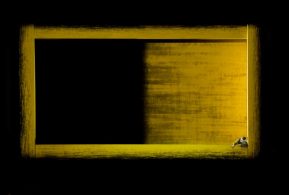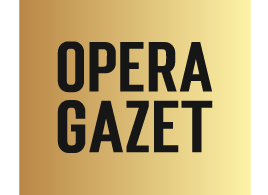The entire opera world knows that Placido Domingo just celebrated his eightieth birthday, but hardly any attention is paid to Mario Lanza, whose birth on January 31, 1921 (twenty years before Domingo’s) already hinted that he would develop a beautiful tenor voice.
You can have any review automatically translated. Click the Google Translate button (“Vertalen”), which can be found at the top right of the page. In the Contact Page, the button is in the right column. Select your language at the upper left.
Opera lovers often turn their noses up at Mario Lanza who, after a fine start to his career with roles such as Fenton in Die lustigen Weiber von Windsor, Pinkerton in Madama Butterfly and several concert tours, at the age of barely twenty-six said a final goodbye to the opera stage in order to sell his soul to the studio bosses of Hollywood.
You have to see something like this in its time, of course. Hollywood was the American dream par excellence in 1947 and the sunny tenor of Mario Lanza came just in time to take over the helm of the aging Nelson Eddy & Jeanette MacDonald team.
Singers, by the way, are still undiminished opportunists. How else do you explain that a successful tenor like Jonas Kaufmann, to name but one of the hundreds, unashamedly prostitutes himself in accordance with the senseless demands of modern opera directors, the current rulers of the opera world, and their wankerkind productions.
Mario Lanza, born Alfred Arnold Cocozza, was the son of Tony Cocozza and Maria Lanza, children of Italian emigrants who had settled in Philadelphia. His singing talent became apparent at a very early age, and he was barely 16 when he began to build his professional career. After performing at the Hollywood Bowl, he was able to secure a contract from Louis B. Mayer (Metro-Goldwyn-Mayer).
Mario was readied for his debut in That Midnight Kiss (1949) with Kathryn Grayson, a soprano who also initially preferred opera to film, but like Mario later changed her preference. It was a great success and they became a beloved film couple. They toured together and their popularity was such that they starred in another film together: The Toast of New Orleans (1950).
The real success came for Mario Lanza in 1951 with The Great Caruso. However, not everyone was satisfied with his portrayal of the legendary tenor. The film barely had anything in common with the historical reality and in terms of voice Lanza, unlike popular belief, was not Caruso, he lacked the dark timbre and the unequalled legato.
Kathryn Grayson & Mario Lanza. That Midnight Kiss.
Mario Lanza, “Lamento di Federico”. Royal Albert Hall, 1958.
Italy
After that it was all downhill. Mario was a heavy drinker, undisciplined and would not tolerate criticism, even if it was justified. For The Student Prince only his voice was hired, while the role was played by Edmund Purdom. The film was not a success, but the LP with the beautiful songs by Sigmund Romberg was.
In 1957 he turned his back on Hollywood and moved with his family to Italy. He gave his first live concert in six years at the Royal Albert Hall in London and the audience was pleasantly surprised to hear a tenor there who sounded exactly as they had heard him in the cinema. Mario Lanza didn’t need a microphone at the Royal Albert Hall; he had a real operatic voice.
He auditioned at the Scala of Milan and was immediately offered a two-year contract that would begin with Cavaradossi in Tosca. He also signed an agreement with the Opera of Rome to open the 1960/61 season with Canio in Pagliacci.
Alas, it was all too late. Mario’s health had been undermined, the toll of years of debauched life in Hollywood. He had heart problems, way too high blood pressure and clogged veins. This became fatal to him. He died of an embolism in Rome on October 7, 1959, just 38 years old.
Praise from the cultural world also came too late. The soprano Maria Callas said after his death, “What I regret most is that I did not have the opportunity to sing with the greatest tenor I ever heard.”
Placido Domingo, Luciano Pavarotti and José Carreras all admired Mario Lanza. In 1994, Carreras even paid homage to Lanza through a concert tour in which he unequivocally confessed: “That I am an opera singer is due to Mario Lanza.”


